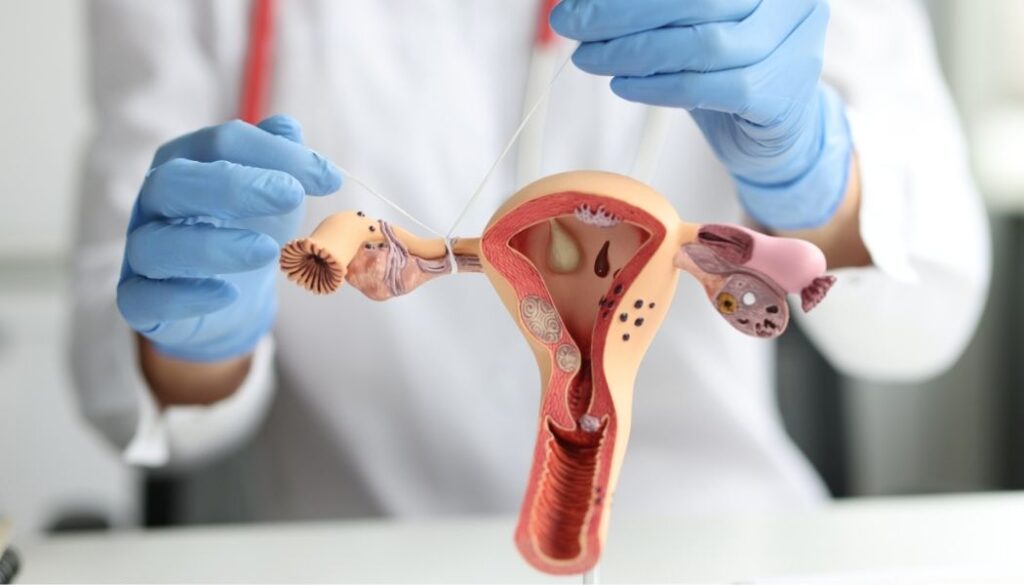You can carry a baby, like full pregnancy and delivery, after tubal ligation? Yes, indeed, it is possible. And actually, it’s not just possible to become a surrogate after tubal ligation – it can even be advantageous.
How? You ask
We have to get into some anatomy to explain why you don’t need your fallopian tubes to carry a pregnancy. Remember those reproductive system diagrams from high school health class? Tubal ligation – or, alternatively, complete fallopian tube removal, called salpingectomy – prohibits eggs from exiting the ovary and setting up shop in your uterus once a month. That means that your eggs can no longer connect with sperm to form a pregnancy. Hence, why tubal ligation is almost 100% effective as birth control.
So, how can you have a pregnancy if that is precisely what the procedure was designed to prevent in the first place? **exploding head emoji** This is where it’s helpful to understand how gestational surrogacy works.
Where tubal ligation meets gestational surrogacy
Gestational surrogacy is assisted-reproductive technology (ART) that allows women and families who are unable to conceive or carry a pregnancy, for any number of reasons, to have a child who is biologically related to them.
Surrogacy involves you becoming pregnant via in-vitro fertilization (IVF), using an embryo created with someone else’s egg. So, your eggs and fallopian tubes are not involved. Still, your uterus continues to be capable of all of its functions, and you have a regular menstrual cycle after tubal ligation. Therefore, your uterus is still able to host a pregnancy.
Ever wonder why you continue to menstruate after tubal ligation? Your menstrual cycle is triggered by hormones that circulate in your blood throughout your body; it isn’t the egg release that starts the whole thing. Menstruation originates in the lining of your uterus – so losing access to your eggs through the fallopian tubes from tubal ligation does not affect your monthly cycle.
Why in the world is a surrogate with tubal ligation at an advantage?
Interestingly, surrogacy professionals not only approve of surrogacy after tubal ligation, but they even prefer it! There are a couple of reasons for that.
First of all, given that tubal ligation is the most effective birth control procedure, you have less than a 1% chance of becoming pregnant naturally. IVF involves hormone treatments and medical tests that take a few weeks or months. The purpose of those treatments is to make you as fertile as possible, and surrogates are required to abstain from sex with their partner during that time. When you’ve had a tubal ligation, pregnancy from intercourse is a hugely unlikely occurrence, no matter how fertile your body is.
The second advantage that surrogacy professionals see with women who have undergone tubal ligation is that the procedure is typically only performed on women who already have completed their own families with pregnancy. So now, you can put all of your body’s fertility resources toward becoming a surrogate.
Surrogacy requirements
Having had a tubal ligation is not the only qualifying factor for becoming a surrogate. Though we mostly discussed biology here, we need to pause and remind you that surrogacy is a noble and all-encompassing life experience. As a surrogate, you will be giving another woman the hope and joy of pregnancy, and you will transform others’ lives by helping grow another family. It will require a lot of time, effort, and focus on your part.
Baseline requirements include that you must be between 21-42 years old and have had at least one full-term, uncomplicated pregnancy, and birth. Full requirements are here.
And you will still go through the full application and screening process. It’s just good to know that not just in spite of, but maybe even because of your tubal ligation, choosing to be a surrogate might be an extra-good fit for you.

